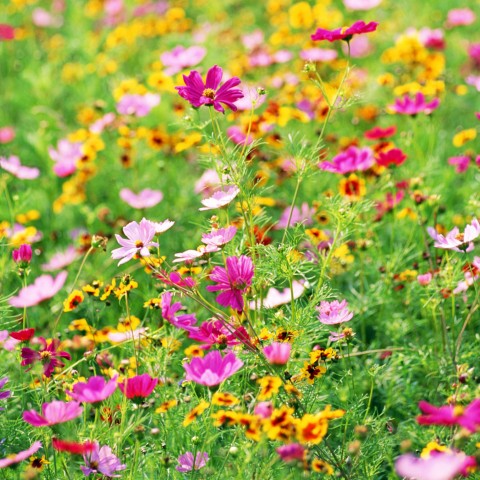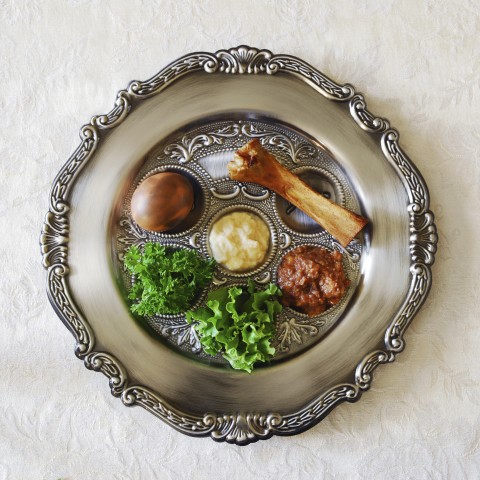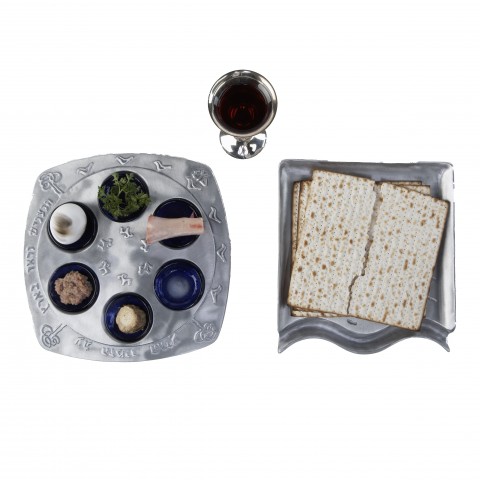In Judaism, Passover is one of the most important holidays of the year. It celebrates the release of the Jews from Egypt as described in the biblical book of Exodus, and commemorates the events leading up to it.
Maybe you’ve heard of Passover before, but never really understood what it’s about or how it’s celebrated. If so, this article will be your golden ticket to understanding the basics and getting better acquainted with Jewish culture and traditions.
Let’s get started!

1. What is Passover?

Passover is a Jewish holiday celebrated for seven days during אביב (aviv), or spring. The celebration of this holiday is commanded and outlined in the biblical books of Exodus and Leviticus, and the purpose of this holiday is to commemorate the events leading up to the חירות (kherut), or freedom, of the Israelites after fleeing Egypt.
The history of Passover in the Bible can be found in the book of Exodus, according to which the Jews were once enslaved by the people of Egypt. In the form of a burning bush, Yahweh commanded משה (Moshe), or Moses, to speak with Pharaoh about releasing the Israelites. Despite Moses’s strong faith and devotion, he lacked confidence in his speaking abilities and rather had his older brother אהרון (Aharon), or Aaron, speak on his behalf. When Pharaoh refused, Yahweh brought about the עשר מכות (Eser makot), or 10 Plagues, which wreaked havoc among the Egyptians and caused many deaths.
The last of these plagues was the killing of all Egyptian firstborn sons, including the Pharaoh’s own son. The Israelites were spared this plague, for Yahweh commanded them to mark their doors with the blood of a lamb which would cause the Angel of Death to pass over them. It is this event which the holiday is named after.
Passover is one of the Three Pilgrimage Festivals. You can learn about the other two on our website!
2. When is Passover This Year?

The first day of Passover begins on the fifteenth of Nissan according to the Jewish calendar. Here are the start and end dates of this holiday on the Gregorian calendar for the next ten years:
- 2021: March 27 – April 4
- 2022: April 15 – April 22
- 2023: April 5 – April 12
- 2024: April 22 – April 29
- 2025: April 12 – April 19
- 2026: April 1 – April 9
- 2027: April 21 – April 29
- 2028: April 10 – April 18
- 2029: March 30 – April 7
- 2030: April 17 – April 25
3. Passover Traditions

Passover traditions actually begin the morning before, on the fourteenth of Nissan. This is when observant Jews scour their homes for any trace of חמץ (khametz), or hametz. Hametz refers to any type of leavened product, which is prohibited on Passover. All of the hametz that’s found in one’s home must be burned.
Another event that takes place prior to the actual Passover holiday is the Fast of the Firstborn. This is a fast that the firstborn son of every practicing Jewish family participates in to commemorate the fact that Yahweh spared all of the Jewish firstborns in the Exodus story. However, people are allowed to break this fast in the event of a celebratory event; synagogues often host such an event so that the firstborn sons can eat during Passover.
On the evening of the first day of Passover, observant Jews have the Passover seder. This is a special meal that aids in telling the Passover story and keeping it fresh in mind. The Passover meal consists of several different foods which symbolize key aspects of the Israelites’ journey to freedom:
- מרור (maror), which are bitter herbs symbolizing the bitterness of the Jews’ slavery
- חרוסת (kharoset), or charoseth, which is a sweet mix of fruit and nuts with honey, symbolizing the mortar Jewish slaves used in building
- מצה (matzah), or matzo, which is an unleavened bread product symbolizing the unleavened bread eaten by the fleeing Israelites
It’s also customary to pour wine for each guest, as well as a glass for the Prophet Elijah who is said to visit the homes of those observing the seder.
Each of these food elements is held and consumed in accordance with the Exodus story from the Haggadah. In addition, the recital of the Four Questions takes place during the seder.
The following day (the sixteenth of Nissan) marks another milestone on the Jewish calendar: it’s fifty days before Shavuot. It begins the Counting of the Omer, during which Jews begin the countdown to Shavuot.
- See our vocabulary on Israeli Food to learn more useful cuisine-related words!
4. Afikoman
Another fascinating Passover tradition involves the children. Parents cut off part of the matzah from the seder, called the אפיקומן (Afikoman), and hide it. The children are then encouraged to find it in order to receive presents as compensation.
A common variation of this tradition is for the children to steal the Afikoman themselves and return it in exchange for gifts.
5. Essential Hebrew Vocabulary for Passover

Here are some of the most important vocabulary words and phrases for Passover in Israel:
- Spring – אביב (aviv), noun [m]
- Arm – זרוע (z’roa’), noun [f]
- Egypt – מצרים (mitz’rayim), noun [f]
- Passover – פסח (Pesakh), noun [m]
- Red Sea – ים סוף (Yam Suf), noun [m]
- Pilgrimage – עליה לרגל (aliya la-regel), noun [f]
- Afikoman – אפיקומן (Afikoman), noun [m]
- Aaron – אהרון (Aharon), noun [m]
- 10 Plagues – עשר מכות (Eser makot), noun [f]
- Song of Songs – שיר השירים (Shir ha`shirim), noun [m]
- Passover Sacrifice – קורבן פסח (Korban Pesakh), noun [m]
- Pharaoh – פרעה (Par-oh), noun [m]
- Moses – משה (Moshe), noun [m]
- Matzo – מצה (matzah), noun [f]
- Maror – מרור (maror), noun [m]
- Hametz – חמץ (khametz), noun [m]
- Freedom – חירות (kherut), noun [f]
- Cleaning – נקיון (nikayon), noun [m]
- Charoseth – חרוסת (kharoset), noun [f]
Also be sure to head over to our Passover vocabulary list! Here, you can listen to the pronunciation of each word and practice along with the recordings.
Final Thoughts
The Jewish Passover is a defining holiday for Jews in Israel and around the world, so we hope you enjoyed learning about it with us! What are some of the important religious holidays in your country?
If you liked this lesson and want to continue exploring Israeli culture and the Hebrew language, make sure to explore HebrewPod101.com and take advantage of our numerous resources. Our free vocabulary lists, online dictionary, and numerous audio and video lessons will help you reach your language learning goals sooner than you think!










